Code
HCS32491
Weight
460 gm / 1.01 lbs
Size
Height
30cm (12") Width
17cm (7") Depth
8cm (3") Material
Wood
Availability
Available

Safe Payment
We accept Paypal, Money Transfer, Bank Transfer
Confidence
Protection covers your purchase and personal data.
Worldwide Delivery
We ship Worldwide, except Russia.Shipping cost US$25.2 for upto 0.5 kgs

Hotline
Talk to help line for your question on 9841267335Antique Finishing
This is an antique patina-finished [buddha], Handmade Wooden Mask, Wall Hanging, [painted], Poplar Wood. This is not an antique statue. It is just an antique patina finish. This [buddha], Handmade Wooden Mask, Wall Hanging, [painted], Poplar Wood is a testament to the artisan's mastery of the art of aging. Its antique patina has been meticulously crafted to give the appearance of an aged statue, showcasing the artist's unique techniques and skills. Through undisclosed processes and careful aging treatments, the [buddha], Handmade Wooden Mask, Wall Hanging, [painted], Poplar Wood undergoes a transformation that captures the essence of time and history. Read More . . .
This is an antique patina-finished [buddha], Handmade Wooden Mask, Wall Hanging, [painted], Poplar Wood. This is not an antique statue. It is just an antique patina finish. This [buddha], Handmade Wooden Mask, Wall Hanging, [painted], Poplar Wood is a testament to the artisan's mastery of the art of aging. Its antique patina has been meticulously crafted to give the appearance of an aged statue, showcasing the artist's unique techniques and skills. Through undisclosed processes and careful aging treatments, the [buddha], Handmade Wooden Mask, Wall Hanging, [painted], Poplar Wood undergoes a transformation that captures the essence of time and history. Read More . . .
About Wooden Mask
this [buddha], Handmade Wooden Mask, Wall Hanging, [painted], Poplar Wood mask is Nepali handmade mask and we are Introducing our exquisite collection of Nepali handmade hand-carved wooden Buddhist masks and wall hangings, meticulously crafted by skilled artisans. Each piece in this collection reflects the rich cultural heritage and spiritual significance of Nepal. These masks and wall hangings are not just decorative pieces but hold deep symbolic meaning, making them perfect for adding an authentic touch to your living spaces or meditation rooms. Read More . . .
this [buddha], Handmade Wooden Mask, Wall Hanging, [painted], Poplar Wood mask is Nepali handmade mask and we are Introducing our exquisite collection of Nepali handmade hand-carved wooden Buddhist masks and wall hangings, meticulously crafted by skilled artisans. Each piece in this collection reflects the rich cultural heritage and spiritual significance of Nepal. These masks and wall hangings are not just decorative pieces but hold deep symbolic meaning, making them perfect for adding an authentic touch to your living spaces or meditation rooms. Read More . . .
Poplar Wood : Brief Introduction
This wooden mask is made from the finest poplar wood, embodying both natural beauty and artistic craftsmanship. The light, creamy tones of the poplar wood lend an air of elegance to this unique mask. Its intricate details and smooth texture showcases the exceptional workability of poplar wood, allowing for precise carving and shaping. With its durability and timeless appeal, this poplar wood mask is a stunning addition to any space, adding a touch of cultural richness and artistic charm to your decor.
This wooden mask is made from the finest poplar wood, embodying both natural beauty and artistic craftsmanship. The light, creamy tones of the poplar wood lend an air of elegance to this unique mask. Its intricate details and smooth texture showcases the exceptional workability of poplar wood, allowing for precise carving and shaping. With its durability and timeless appeal, this poplar wood mask is a stunning addition to any space, adding a touch of cultural richness and artistic charm to your decor.
In Theravāda Buddhism :
In the Pāli canon, the bodhisattva Siddhartha Gautama is described thus before my Awakening, when I was an un awakened bodhisattva, being subject myself to birth, sought what was likewise subject to birth. Being subject myself to aging... illness... death... sorrow... defilement, I sought happiness in what was likewise subject to illness... death... sorrow... defilement.
Ariyapariyesana Sutta
While Maitreya is mentioned in the Pāli canon, he is not referred to as a bodhisattva, but simply the next fully awakened Buddha to come into existence long after the current teachings of the Buddha are lost.
In later Theravāda literature, the term "bodhisatta" is used fairly frequently in the sense of someone on the path to liberation. The later tradition of commentary also recognizes the existence of two additional types of bodhisattas: the paccekabodhisatta who will attain Paccekabuddhahood, and the savakabodhisatta who will attain enlightenment as a disciple of a Buddha. According to the Theravāda teacher Bhikkhu Bodhi the bodhisattva path was not taught by Buddha
In Mahāyāna Buddhism :Ariyapariyesana Sutta
While Maitreya is mentioned in the Pāli canon, he is not referred to as a bodhisattva, but simply the next fully awakened Buddha to come into existence long after the current teachings of the Buddha are lost.
In later Theravāda literature, the term "bodhisatta" is used fairly frequently in the sense of someone on the path to liberation. The later tradition of commentary also recognizes the existence of two additional types of bodhisattas: the paccekabodhisatta who will attain Paccekabuddhahood, and the savakabodhisatta who will attain enlightenment as a disciple of a Buddha. According to the Theravāda teacher Bhikkhu Bodhi the bodhisattva path was not taught by Buddha
Bodhisattva ideal
Mahāyāna Buddhism is based principally upon the path of a bodhisattva. The term Mahāyāna was originally synonym for Bodhisattvayāna, or the "Bodhisattva Vehicle."The holly book of Mahayana contains a simple and brief definition for the term bodhisattva, which is also the earliest known Mahāyāna definition. This definition is given as the following.
"Because he has enlightenment as his aim, a bodhisattva-mahāsattva is so called."
Mahāyāna Buddhism encourages everyone to become bodhisattvas and to take the bodhisattva vows. With these vows, one makes the promise to work for the complete enlightenment of all sentient beings by practicing the six perfections. Indelibly entwined with the bodhisattva vow is merit transference
In Mahāyāna Buddhism life in this world is compared to people living in a house that is on fire. People take this world as reality pursuing worldly projects and pleasures without realizing that the house is on fire and will soon burn down (due to the inevitability of death). A bodhisattva is one who has a determination to free sentient beings from universe and its cycle of death, rebirth and suffering. This type of mind is known as the mind of awakening (bodhicitta). Bodhisattvas take bodhisattva vows in order to progress on the spiritual path towards buddhahood.
There are a variety of different conceptions of the nature of a bodhisattva in Mahāyāna. According to some Mahāyāna sources a bodhisattva is someone on the path to full Buddhahood. Others speak of bodhisattvas renouncing Buddhahood.
A bodhisattva can choose any of three paths to help sentient beings in the process of achieving buddhahood. They are:
king-like bodhisattva - one who aspires to become buddha as soon as possible and then help sentient beings in full fledge;
boatman-like bodhisattva - one who aspires to achieve buddhahood along with other sentient beings and
shepherd-like bodhisattva - one who aspires to delay buddhahood until all other sentient beings achieve buddhahood. Bodhisattvas like Avalokiteśvara and Śāntideva are believed to fall in this category.
Ten grounds :Mahāyāna Buddhism is based principally upon the path of a bodhisattva. The term Mahāyāna was originally synonym for Bodhisattvayāna, or the "Bodhisattva Vehicle."The holly book of Mahayana contains a simple and brief definition for the term bodhisattva, which is also the earliest known Mahāyāna definition. This definition is given as the following.
"Because he has enlightenment as his aim, a bodhisattva-mahāsattva is so called."
Mahāyāna Buddhism encourages everyone to become bodhisattvas and to take the bodhisattva vows. With these vows, one makes the promise to work for the complete enlightenment of all sentient beings by practicing the six perfections. Indelibly entwined with the bodhisattva vow is merit transference
In Mahāyāna Buddhism life in this world is compared to people living in a house that is on fire. People take this world as reality pursuing worldly projects and pleasures without realizing that the house is on fire and will soon burn down (due to the inevitability of death). A bodhisattva is one who has a determination to free sentient beings from universe and its cycle of death, rebirth and suffering. This type of mind is known as the mind of awakening (bodhicitta). Bodhisattvas take bodhisattva vows in order to progress on the spiritual path towards buddhahood.
There are a variety of different conceptions of the nature of a bodhisattva in Mahāyāna. According to some Mahāyāna sources a bodhisattva is someone on the path to full Buddhahood. Others speak of bodhisattvas renouncing Buddhahood.
A bodhisattva can choose any of three paths to help sentient beings in the process of achieving buddhahood. They are:
king-like bodhisattva - one who aspires to become buddha as soon as possible and then help sentient beings in full fledge;
boatman-like bodhisattva - one who aspires to achieve buddhahood along with other sentient beings and
shepherd-like bodhisattva - one who aspires to delay buddhahood until all other sentient beings achieve buddhahood. Bodhisattvas like Avalokiteśvara and Śāntideva are believed to fall in this category.
According to many traditions within Mahāyāna Buddhism, on the way to becoming a Buddha, a bodhisattva proceeds through ten, or sometimes fourteen, grounds. Below is the list of the ten grounds and their descriptions.
Great Joy: It is said that being close to enlightenment and seeing the benefit for all sentient beings, one achieves great joy, hence the name. In this bhūmi the bodhisattvas practice all perfections (pāramitās), but especially emphasizing generosity .
Stainless: In accomplishing the second bhūmi, the bodhisattva is free from the stains of immorality, therefore, this bhūmi is named "stainless". The emphasized perfection is moral discipline.
Luminous: The third ground is named "luminous", because, for a bodhisattva who accomplishes this bhūmi, the light of Dharma is said to radiate for others from the bodhisattva. The emphasized perfection is patience .
Radiant: This ground is called "radiant", because it is said to be like a radiating light that fully burns that which opposes enlightenment. The emphasized perfection is vigor.
Very difficult to train: Bodhisattvas who attain this bhūmi strive to help sentient beings attain maturity, and do not become emotionally involved when such beings respond negatively, both of which are difficult to do. The emphasized perfection is meditative concentration.
Obviously Transcendent: By depending on the perfection of wisdom, [the bodhisattva] does not abide in either saṃsāra or nirvāṇa, so this state is "obviously transcendent". The emphasized perfection is wisdom.
Gone afar: Particular emphasis is on the perfection of skillful means (upāya), to help others.
Immovable: The emphasized virtue is aspiration. This, the "immovable" bhūmi, is the bhūmi at which one becomes able to choose his place of rebirth.
Good Discriminating Wisdom: The emphasized virtue is power.
Cloud of Dharma: The emphasized virtue is the practice of primordial wisdom.
School doctrines :Great Joy: It is said that being close to enlightenment and seeing the benefit for all sentient beings, one achieves great joy, hence the name. In this bhūmi the bodhisattvas practice all perfections (pāramitās), but especially emphasizing generosity .
Stainless: In accomplishing the second bhūmi, the bodhisattva is free from the stains of immorality, therefore, this bhūmi is named "stainless". The emphasized perfection is moral discipline.
Luminous: The third ground is named "luminous", because, for a bodhisattva who accomplishes this bhūmi, the light of Dharma is said to radiate for others from the bodhisattva. The emphasized perfection is patience .
Radiant: This ground is called "radiant", because it is said to be like a radiating light that fully burns that which opposes enlightenment. The emphasized perfection is vigor.
Very difficult to train: Bodhisattvas who attain this bhūmi strive to help sentient beings attain maturity, and do not become emotionally involved when such beings respond negatively, both of which are difficult to do. The emphasized perfection is meditative concentration.
Obviously Transcendent: By depending on the perfection of wisdom, [the bodhisattva] does not abide in either saṃsāra or nirvāṇa, so this state is "obviously transcendent". The emphasized perfection is wisdom.
Gone afar: Particular emphasis is on the perfection of skillful means (upāya), to help others.
Immovable: The emphasized virtue is aspiration. This, the "immovable" bhūmi, is the bhūmi at which one becomes able to choose his place of rebirth.
Good Discriminating Wisdom: The emphasized virtue is power.
Cloud of Dharma: The emphasized virtue is the practice of primordial wisdom.
Some sutras said a beginner would take 3-22 countless eons to become a buddha. Various traditions within Buddhism believe in specific bodhisattvas. Some bodhisattvas appear across traditions, but due to language barriers may be seen as separate entities. For example, Tibetan Buddhists believe in various forms of Chenrezig, who is Avalokiteśvara in Sanskrit, Guanyin in China and Korea, Quan Am in Vietnam, Kannon and Japan. Followers of Tibetan Buddhism consider the Dalai Lamas and the Karmapas to be an emanation of Chenrezig, the Bodhisattva of Compassion.
Kṣitigarbha is another popular bodhisattva in Japan and China. He is known for aiding those who are lost. His greatest compassionate vow is:"If I do not go to the hell to help the suffering beings there, who else will go? ... if the hells are not empty I will not become a Buddha. Only when all living beings have been saved, will I attain Bodhi."
The place of a bodhisattva's earthly deeds, such as the achievement of enlightenment or the acts of dharma, is known as a bodhimanda, and may be a site of pilgrimage. Many temples and monasteries are famous as bodhimandas;
for instance, the island of Putuoshan, located off the coast of Ningbo, is venerated by Chinese Buddhists as the bodhimanda of Avalokitesvara. Perhaps the most famous bodhimanda of all is the bodhi tree under which shakyamuṇi achieved buddhahood.
Kṣitigarbha is another popular bodhisattva in Japan and China. He is known for aiding those who are lost. His greatest compassionate vow is:"If I do not go to the hell to help the suffering beings there, who else will go? ... if the hells are not empty I will not become a Buddha. Only when all living beings have been saved, will I attain Bodhi."
The place of a bodhisattva's earthly deeds, such as the achievement of enlightenment or the acts of dharma, is known as a bodhimanda, and may be a site of pilgrimage. Many temples and monasteries are famous as bodhimandas;
for instance, the island of Putuoshan, located off the coast of Ningbo, is venerated by Chinese Buddhists as the bodhimanda of Avalokitesvara. Perhaps the most famous bodhimanda of all is the bodhi tree under which shakyamuṇi achieved buddhahood.
Bodhisattvas are enlightened beings who have denied Nirvana or has not entered the paradise to help all the other sentient being attain enlightenment. There are many different Bodhisattvas, but the most famous is Avalokitesvara, the god of compassion, and Manjushree the god of wisdom.
Bodhisattvas are usually depicted as less austere or inward than the Buddha. Renouncing their own salvation and immediate entrance into nirvana, they devote all their power and energy to saving suffering beings in this world. As the deity of compassion, Bodhisattvas are typically represented with precious jewelry, elegant garments and graceful postures.


![[buddha], Handmade Wooden Mask, Wall Hanging, [painted], Poplar Wood](https://handicraftseller.com/uploads/pics/product/thumb/2024/04/32491.jpg)
![[buddha], Handmade Wooden Mask, Wall Hanging, [painted], Poplar Wood](https://handicraftseller.com/uploads/pics/product/thumb/2024/04/32491_0.jpg)
![[buddha], Handmade Wooden Mask, Wall Hanging, [painted], Poplar Wood](https://handicraftseller.com/uploads/pics/product/thumb/2024/04/32491_1.jpg)
![[buddha], Handmade Wooden Mask, Wall Hanging, [painted], Poplar Wood](https://handicraftseller.com/uploads/pics/product/thumb/2024/04/32491_2.jpg)
![[buddha], Handmade Wooden Mask, Wall Hanging, [painted], Poplar Wood](https://handicraftseller.com/uploads/pics/product/thumb/2024/04/32491_3.jpg)
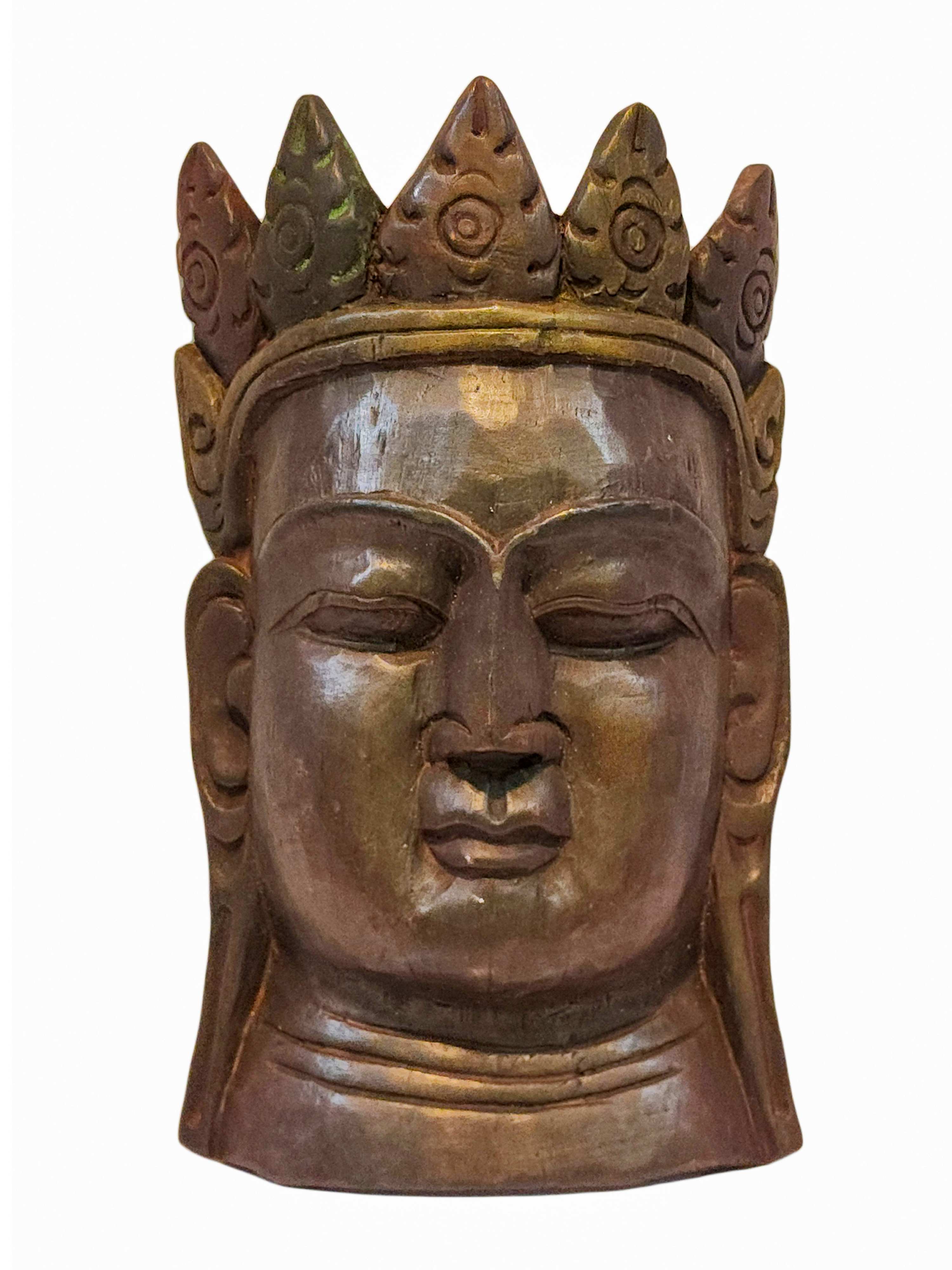
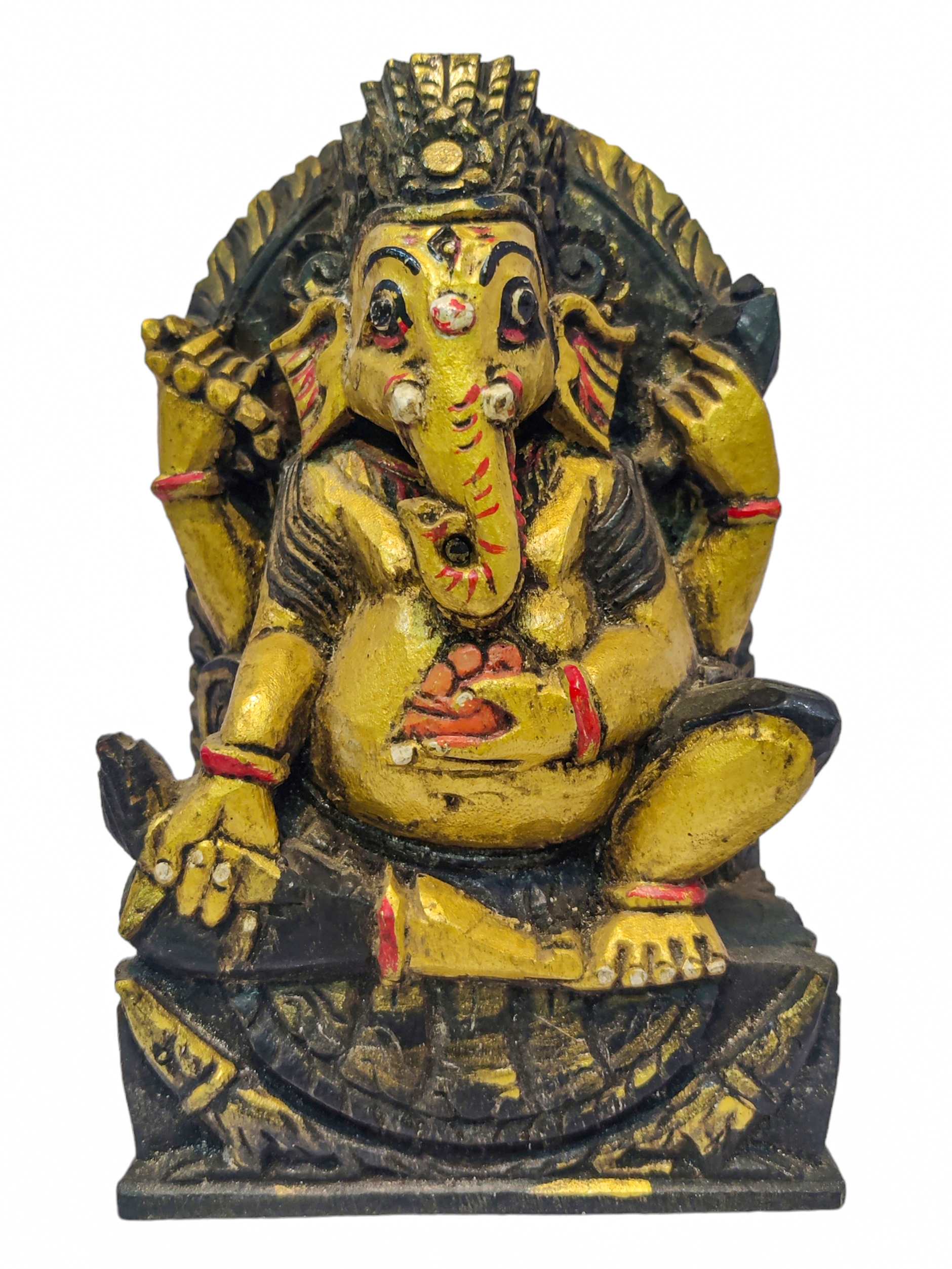 Ganesh, Buddhist Handmade Wooden Statue, Thangka Colour Finishing" title="
Ganesh, Buddhist Handmade Wooden Statue, Thangka Colour Finishing" title="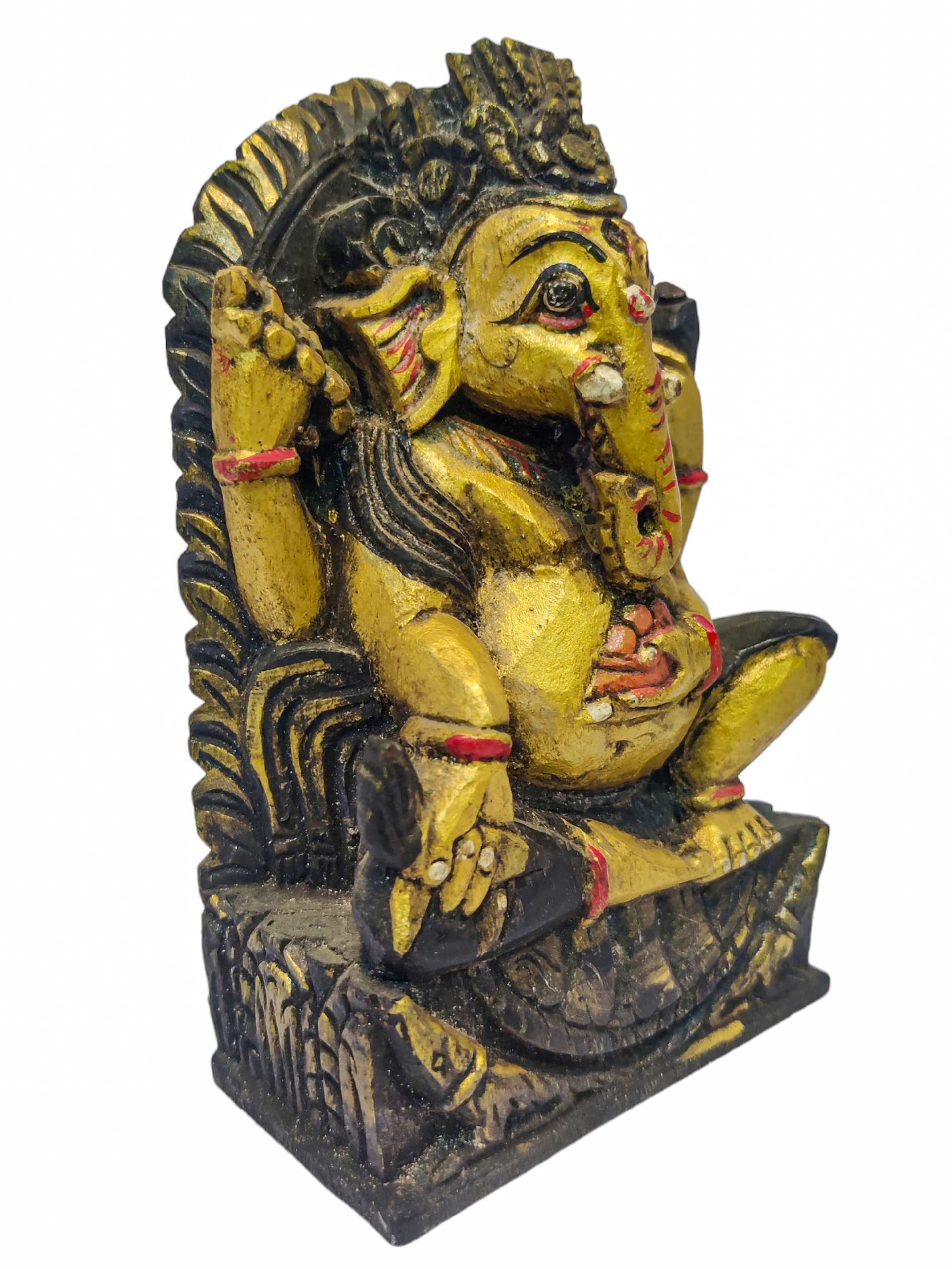 Ganesh, Buddhist Handmade Wooden Statue, Thangka Colour Finishing" title="
Ganesh, Buddhist Handmade Wooden Statue, Thangka Colour Finishing" title=" Painted Wooden Mask For Decorative Wall Hangings, Poplar Wood" title="Citipati Head
Painted Wooden Mask For Decorative Wall Hangings, Poplar Wood" title="Citipati Head 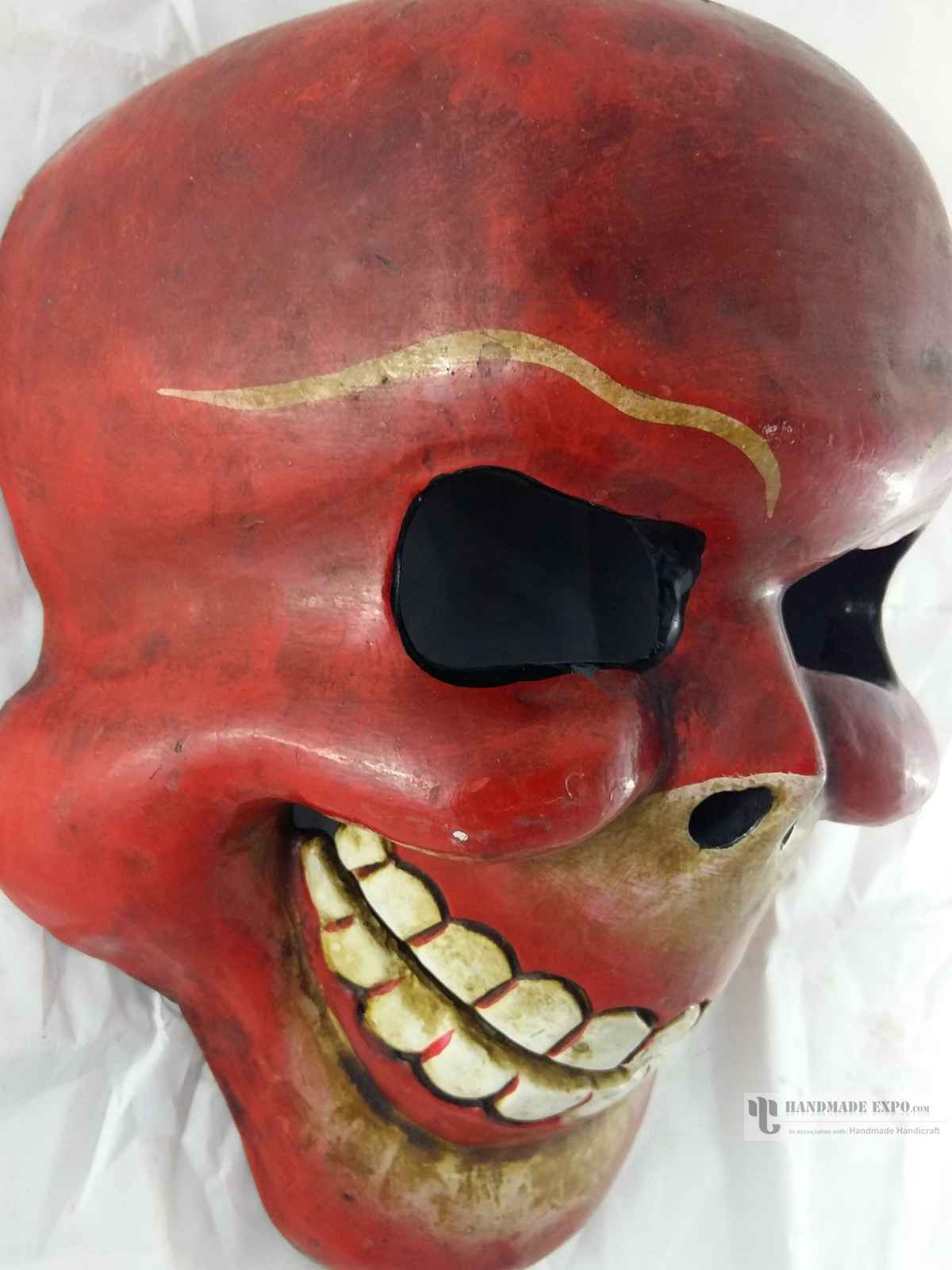 Painted Wooden Mask For Decorative Wall Hangings, Poplar Wood" title="Citipati Head
Painted Wooden Mask For Decorative Wall Hangings, Poplar Wood" title="Citipati Head 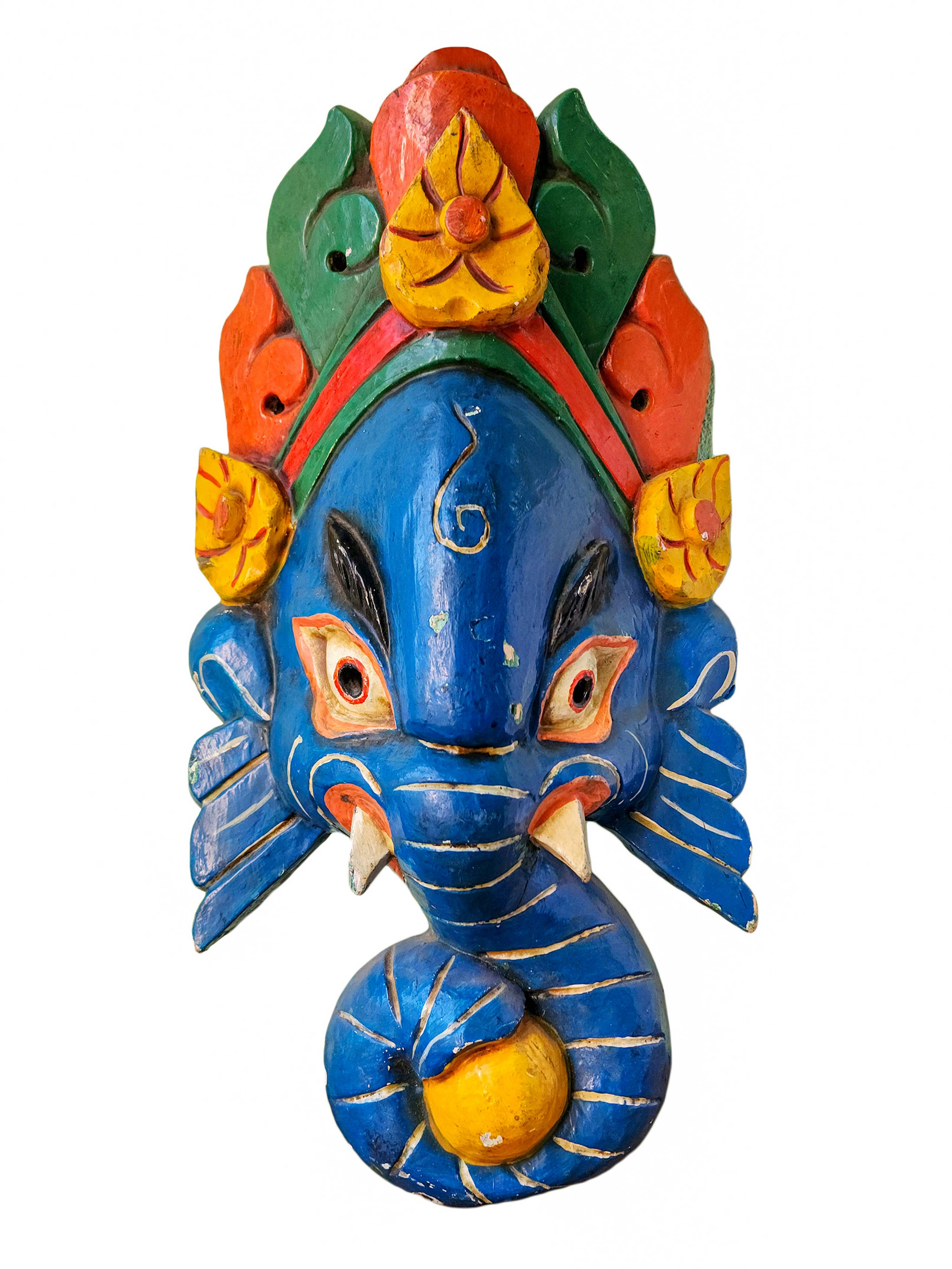 Ganesh Mask, Handmade Wooden Mask, Wall Hanging,
Ganesh Mask, Handmade Wooden Mask, Wall Hanging, 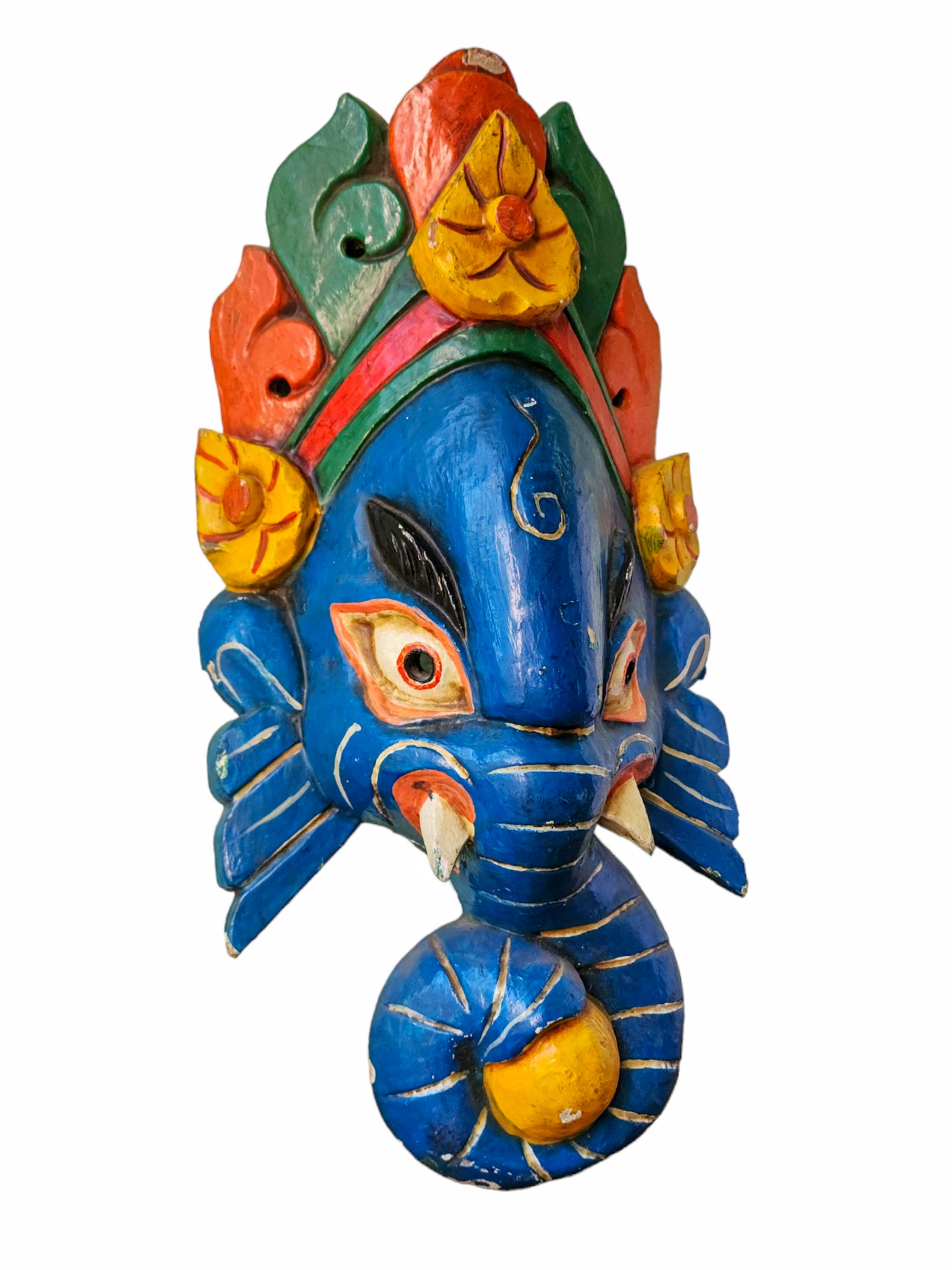 Ganesh Mask, Handmade Wooden Mask, Wall Hanging,
Ganesh Mask, Handmade Wooden Mask, Wall Hanging, 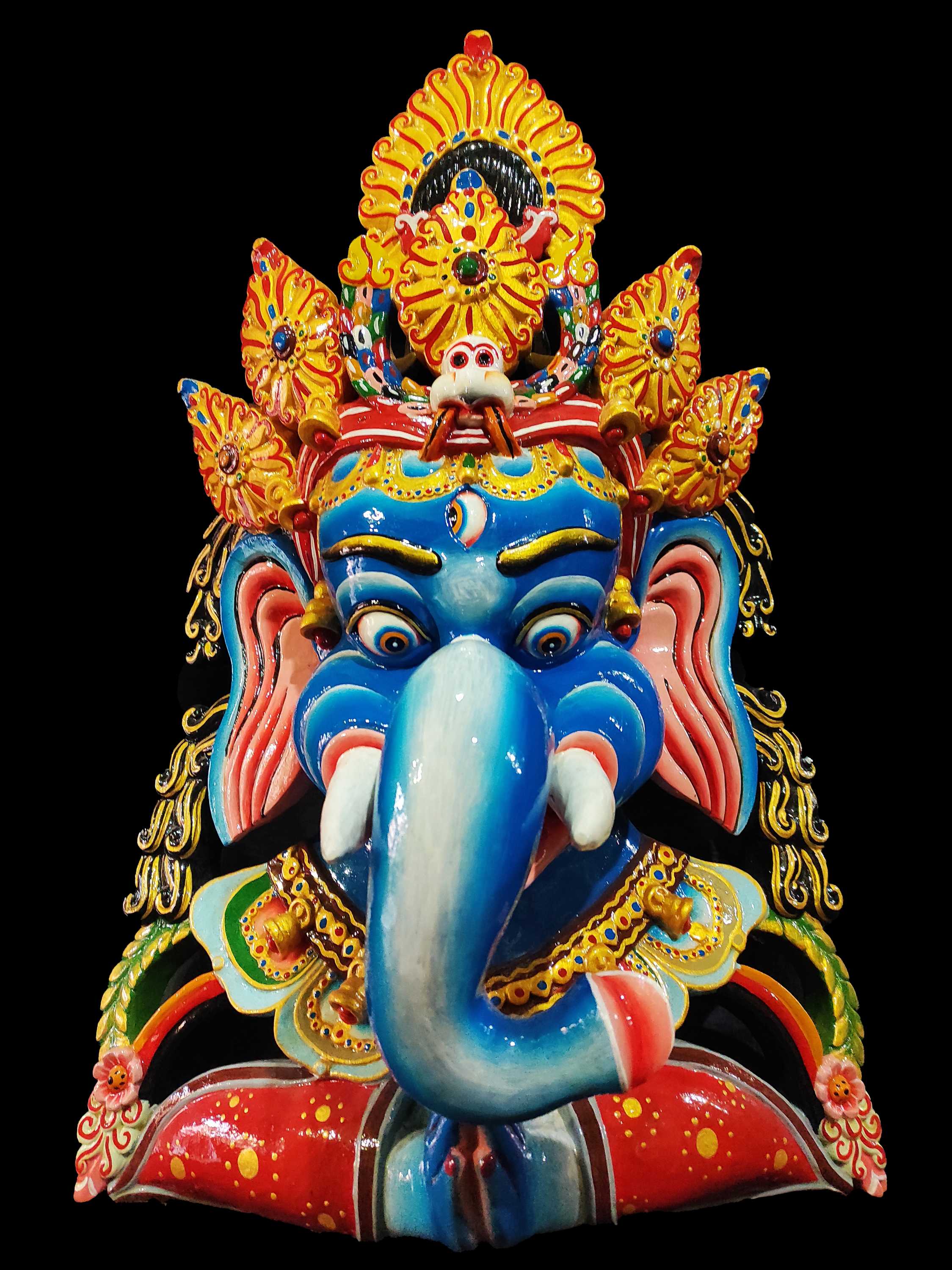 of Namaste Ganesh,
of Namaste Ganesh, 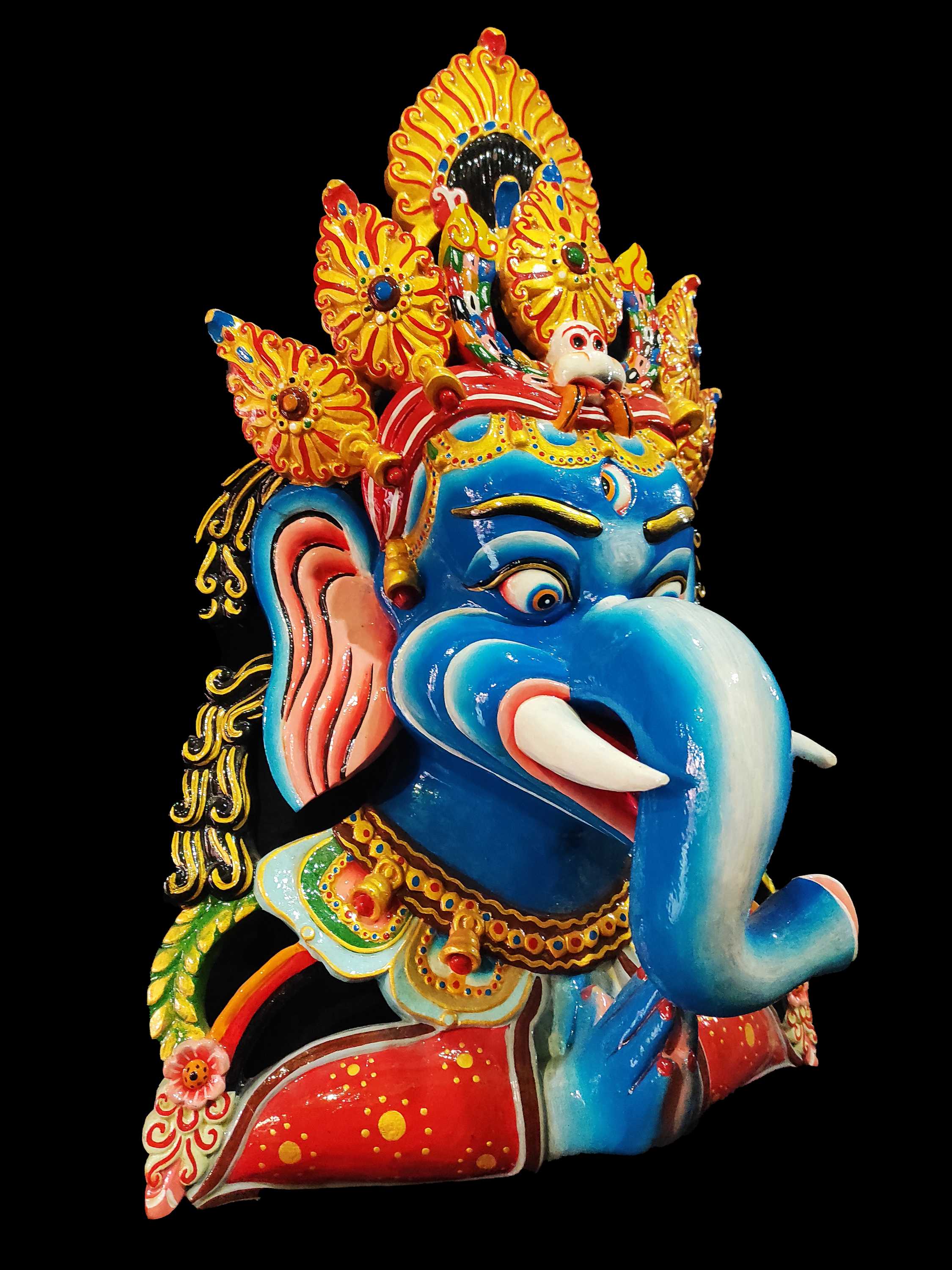 of Namaste Ganesh,
of Namaste Ganesh,  Bahirav, Handmade Wooden Mask, Wall Hanging, Painted, Poplar Wood" title="
Bahirav, Handmade Wooden Mask, Wall Hanging, Painted, Poplar Wood" title="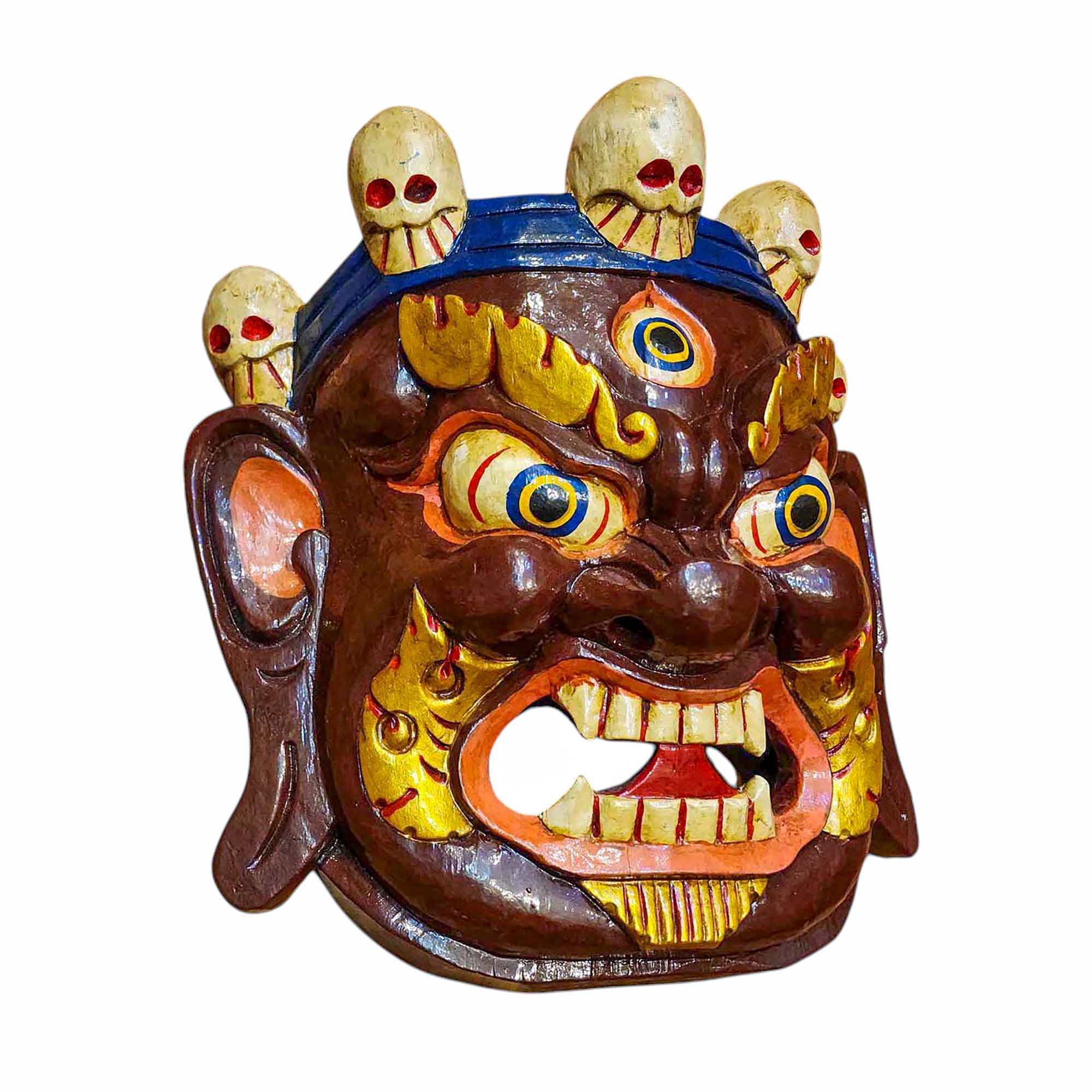 Bahirav, Handmade Wooden Mask, Wall Hanging, Painted, Poplar Wood" title="
Bahirav, Handmade Wooden Mask, Wall Hanging, Painted, Poplar Wood" title=" Dragon, Handmade Wooden Mask, Wall Hanging,
Dragon, Handmade Wooden Mask, Wall Hanging, 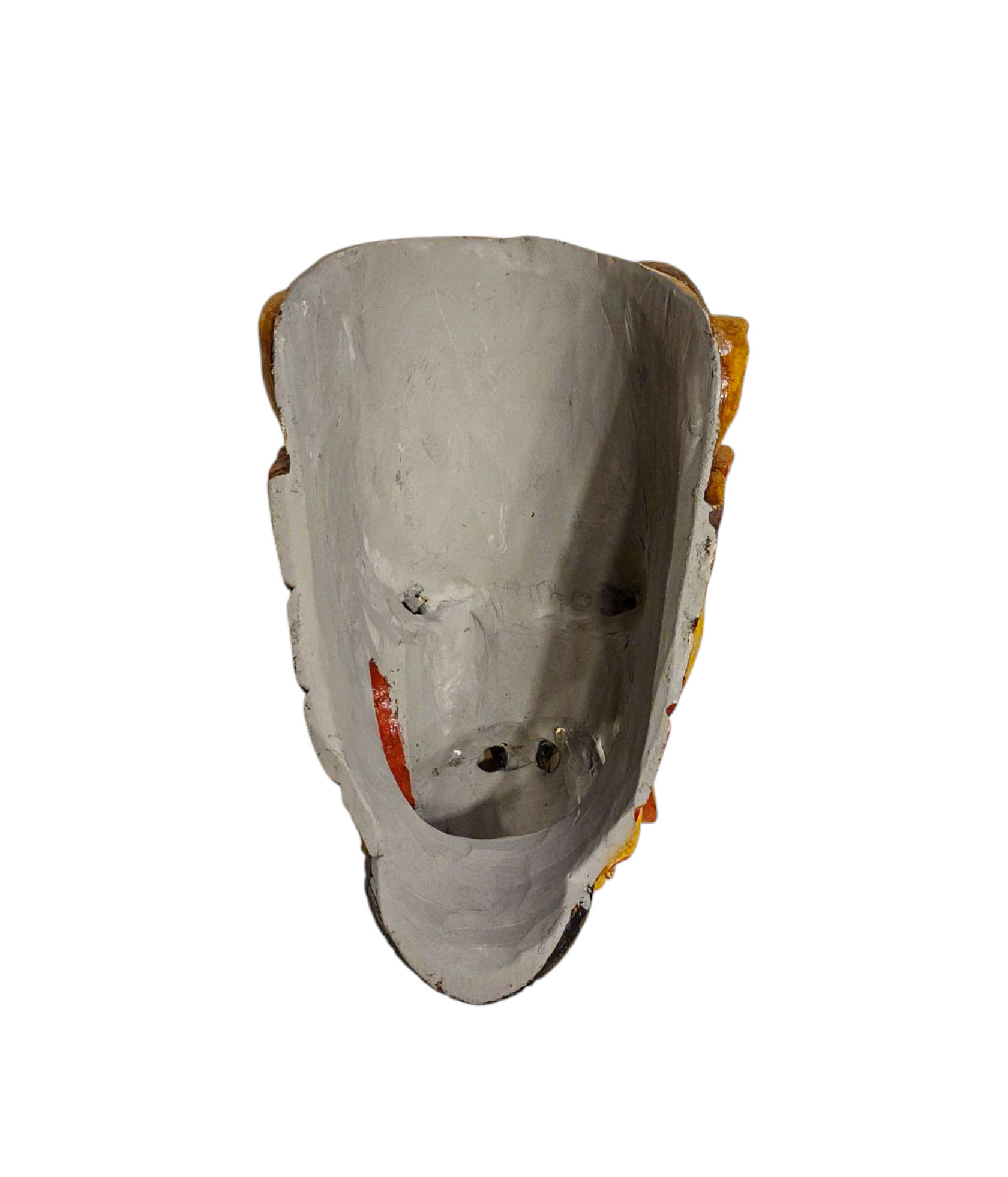 Dragon, Handmade Wooden Mask, Wall Hanging,
Dragon, Handmade Wooden Mask, Wall Hanging, 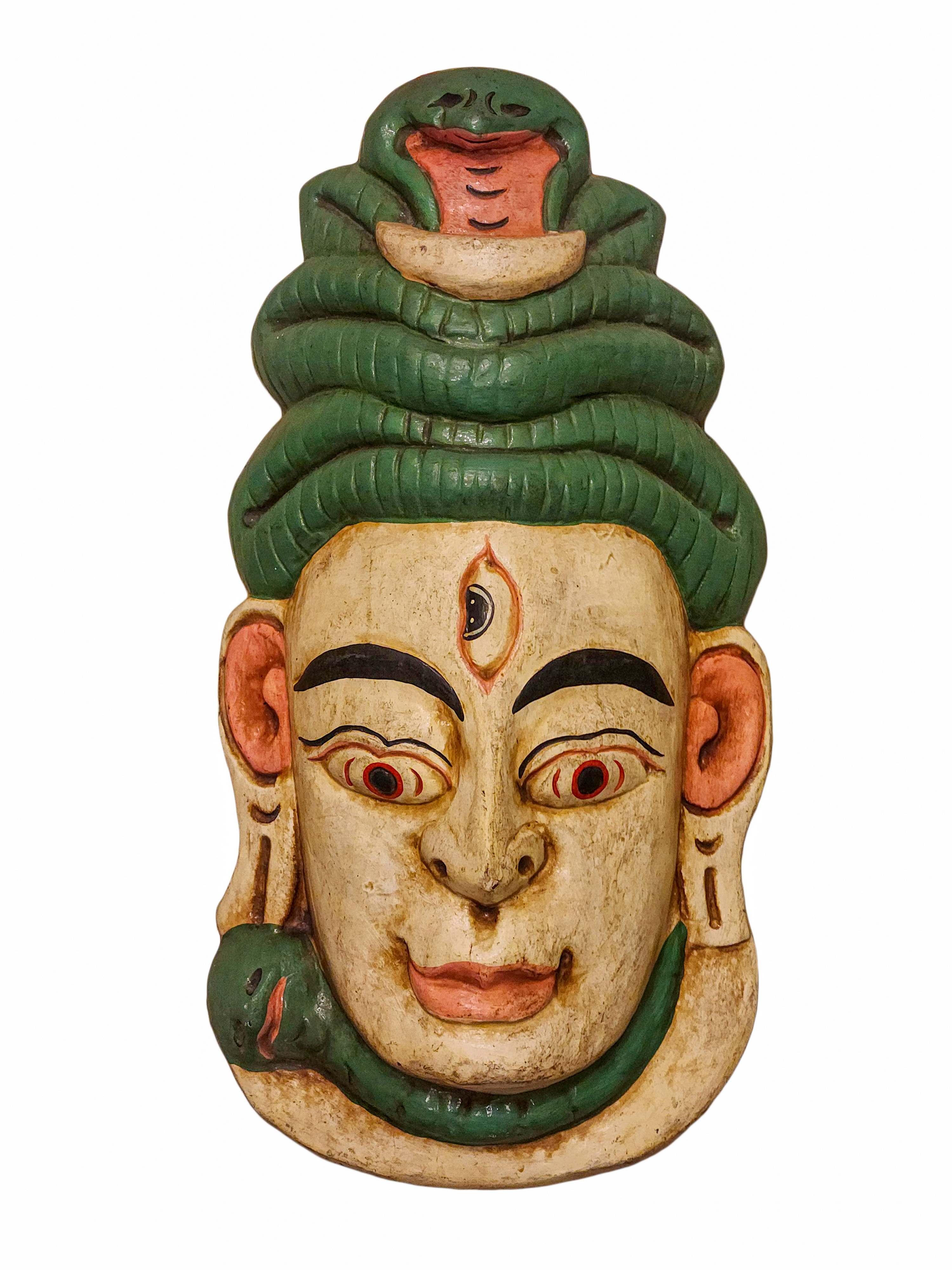 Shiva, Handmade Wooden Mask, Wall Hanging,
Shiva, Handmade Wooden Mask, Wall Hanging, 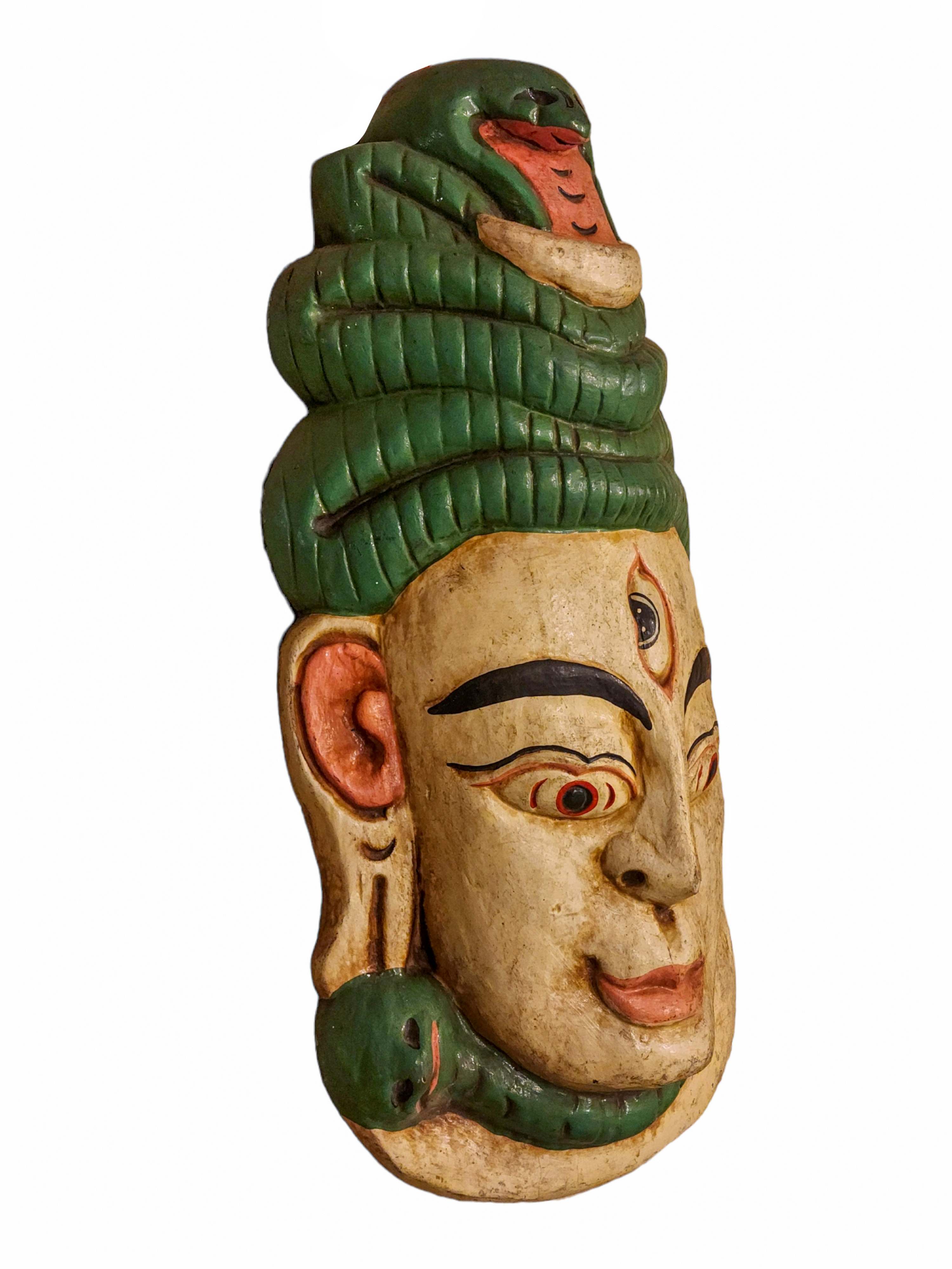 Shiva, Handmade Wooden Mask, Wall Hanging,
Shiva, Handmade Wooden Mask, Wall Hanging,  Bhairav, Handmade Wooden Mask, Wall Hanging, Painted, Poplar Wood" title="
Bhairav, Handmade Wooden Mask, Wall Hanging, Painted, Poplar Wood" title="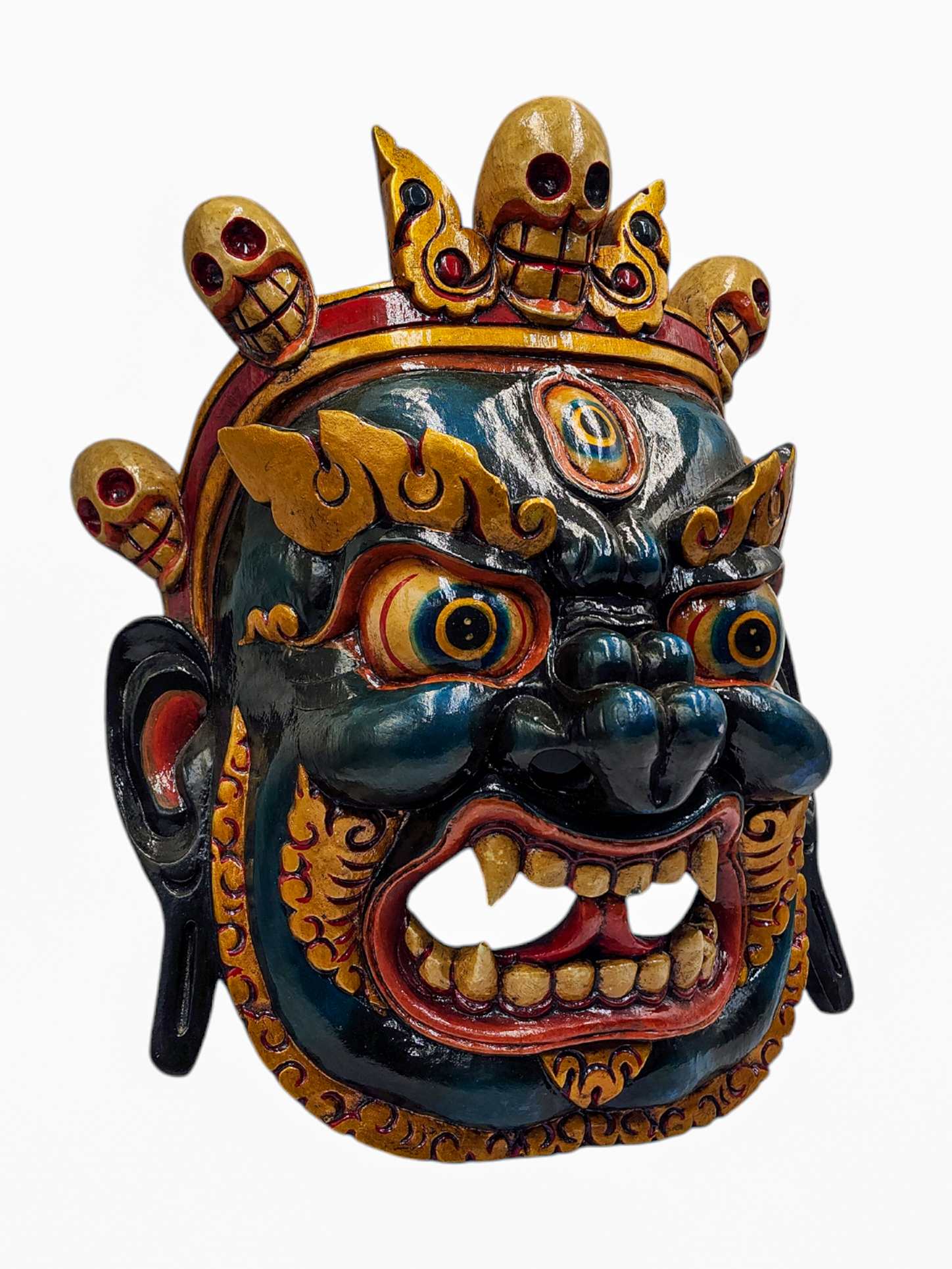 Bhairav, Handmade Wooden Mask, Wall Hanging, Painted, Poplar Wood" title="
Bhairav, Handmade Wooden Mask, Wall Hanging, Painted, Poplar Wood" title=" of Ganesh,
of Ganesh,  of Ganesh,
of Ganesh, 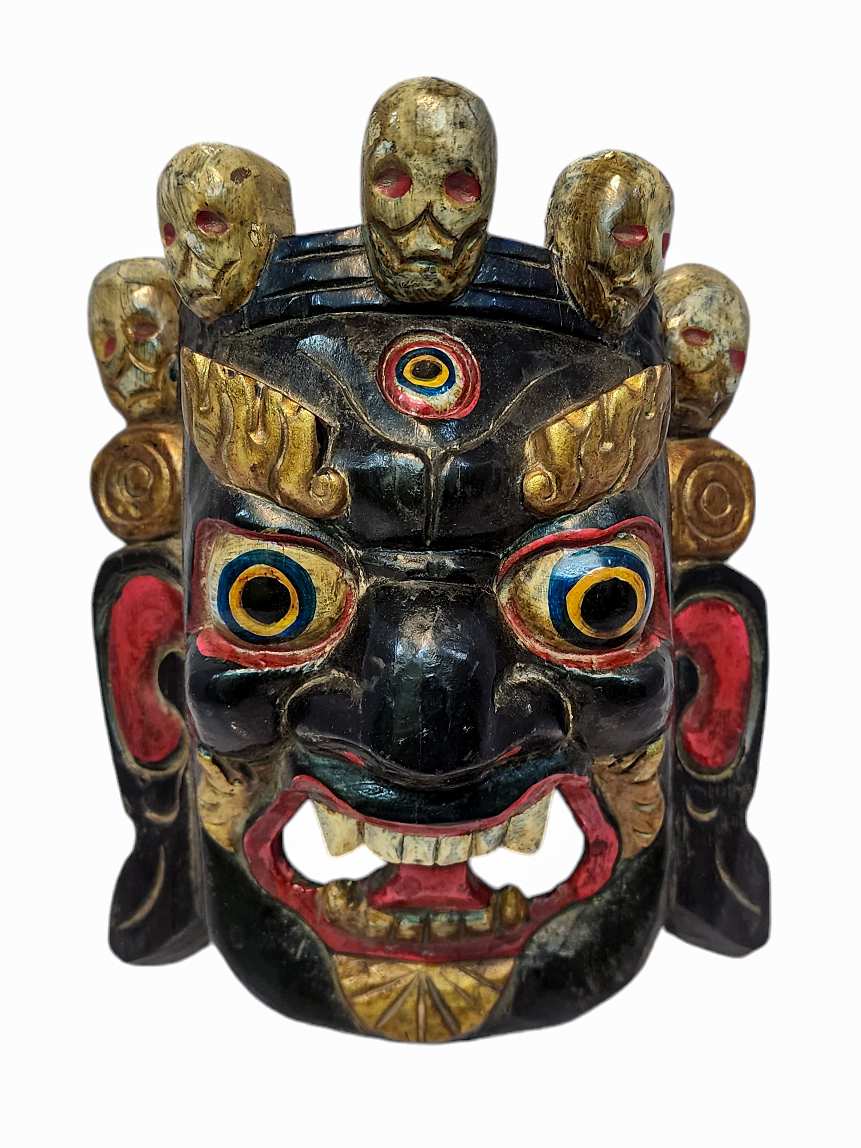 Bhairav, Handmade Wooden Mask, Wall Hanging,
Bhairav, Handmade Wooden Mask, Wall Hanging, 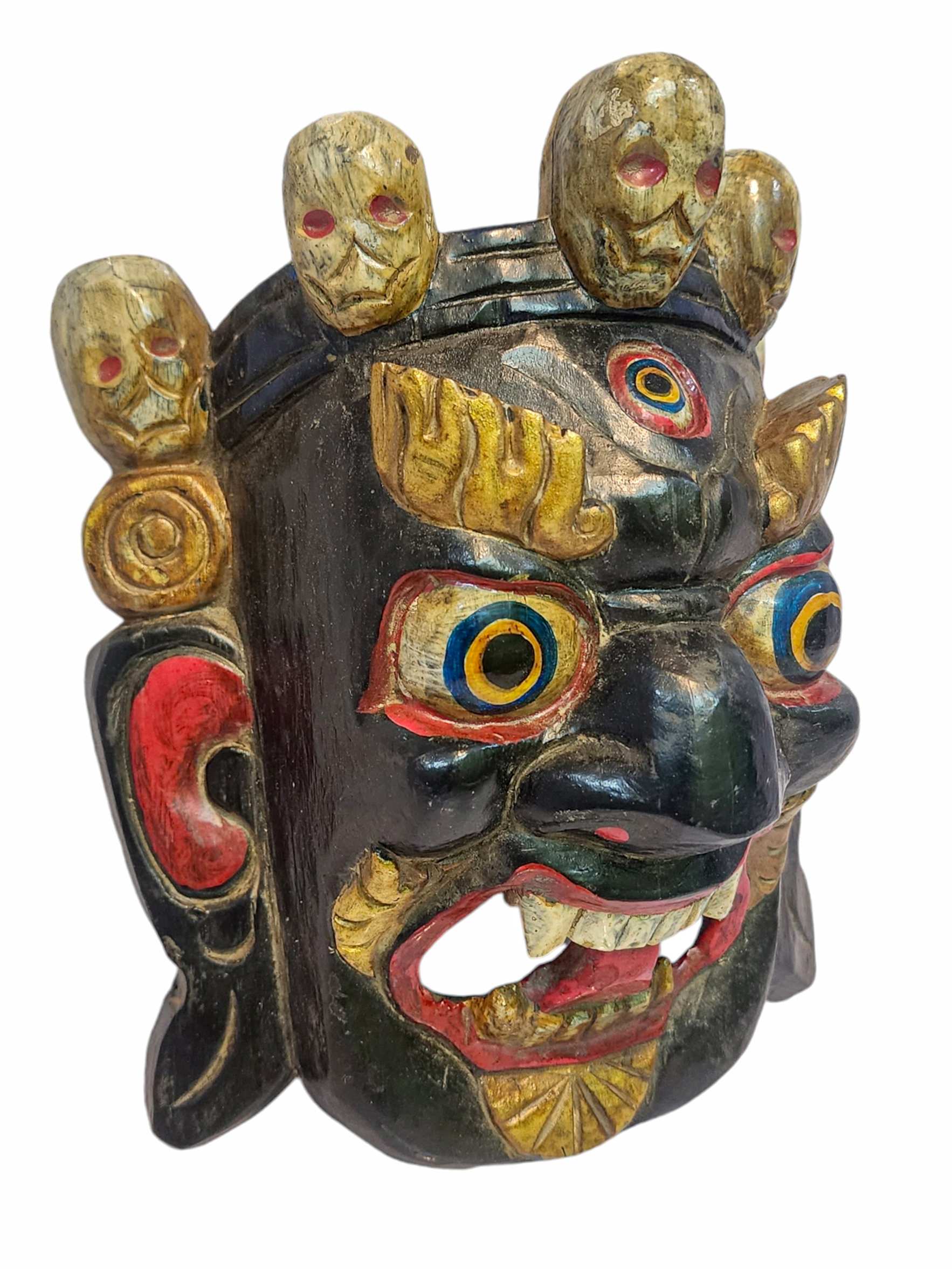 Bhairav, Handmade Wooden Mask, Wall Hanging,
Bhairav, Handmade Wooden Mask, Wall Hanging,